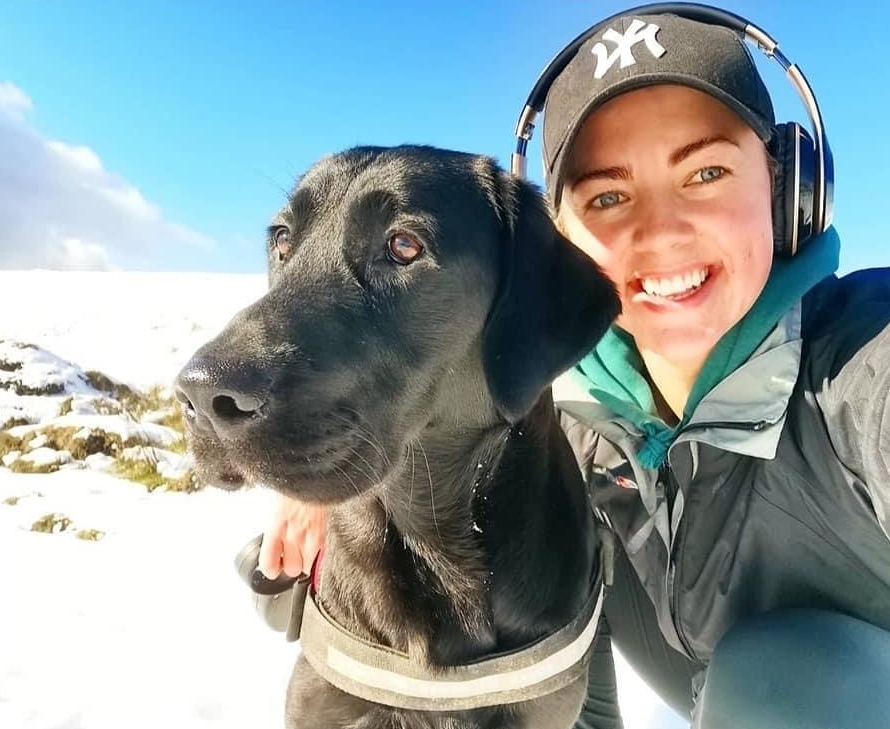
Lucie Berwick and Wilson
A mystery virus which affects dogs is apparently sweeping through the country, as reports of pets suffering with the illness continue to pour in.
The virus, which was first reported in North Yorkshire, has been labelled as a case for concern by the Small Animal Veterinary Surveillance Network (SAVSNET) due to acute symptoms it creates and how fast the bug seems to be spreading.
According to SAVSNET’s data cases are now being reported across the country, although Yorkshire and the North East remains the epicentre.
The main symptoms of the illness being reported so far are:
- severe vomiting
- severe diarrhoea
- significant dehydration and weakness
Lucie Berwick, 27, from Manchester recently shared her experience of this virus after a normal winter, woodland walk left her dog Wilson in the vets.
Lucie said: “I noticed something wasn’t right almost immediately. A few hours after we got home, he suddenly wasn’t himself. At first, he just seemed a bit lethargic and then he started shivering and vomiting, followed by diarrhoea. Both had bits of blood in it, and he was vomiting almost every 20 mins, so I rushed him to the vets.”
The vets gave Wilson an anti-sickness jab and a probiotic paste to help replace any lost nutrients and fortunately he is now on the mend. Although Lucie says even after five full days he doesn’t seem 100% himself.
The British Veterinary Association (BVA) says the bug is causing uncommonly violent gastroenteritis-like symptoms and that currently they can only speculate on what is causing the influx in cases – however they have stressed there does not appear to be a link between the illness and dogs visiting beaches or coastal land as was first reported.
As the cause of this illness, as well as details on how it is being spread, are still such a mystery, online canine brand Lords & Labradors have released their top tips for keeping your four legged friends safe on winter walks.
- Keep Them On Lead – Even if your dog has the best recall, during winter times there are several reasons to keep your dog on lead, from dangers caused by the weather, to your dog becoming distressed in unusual circumstances. This will also prevent them running off and sniffing or eating something they shouldn’t, which could infect them.
- Minimise Contact With Unknown Dogs – This is best practice all year round as not every dog is sociable around other dogs and some can have bad reactions. However, especially as it’s currently unknown how this virus is spread, it’s best to keep contact between your dog and other canines to a minimum.
- Protect Their Paws – Just like in summer where you wouldn’t walk your dog if the pavement is too hot, it’s worth considering how your pet’s paws could be impacted by a winter walk. Aside from the obvious problems such as snow and ice, a big issue during the colder months can come from recently gritted roads which can act as an irritant and cause dryness or cracking.
- Plan Ahead And Keep Aware – The winter months bring with them the dark nights and it’s important to be fully aware of your surroundings if you’re planning to walk your pet in the evening. Reduced visibility can be a huge issue, especially in the countryside. If possible it’s best to stick to well-lit areas and plan ahead as much as possible for example avoid any routes that may be overly muddy or wet and especially any areas where there may be frozen water which could crack under the dog’s weight.
- Consider The Clothing – Both for you and your pet, when going on walks in winter you should have two main concerns; warm and bright. You want to make sure both you and your four legged companion are wrapped up warmly, especially for breeds with minimal fur that may need a coat, and try to be as bright and as visible as possible. Dog LED collars have become incredibly popular in recent months and make it difficult for others to miss your pooch.
Keep Up With Your Checks – Any outbreak of illness can be a scary time for pet owners, especially one where vets are unsure of how it’s spreading and that seems to come on quickly. Which is why it is best practice, no matter the time of year, to keep up with your dog’s health checks and booster vaccines to make sure they are as healthy as can be.

